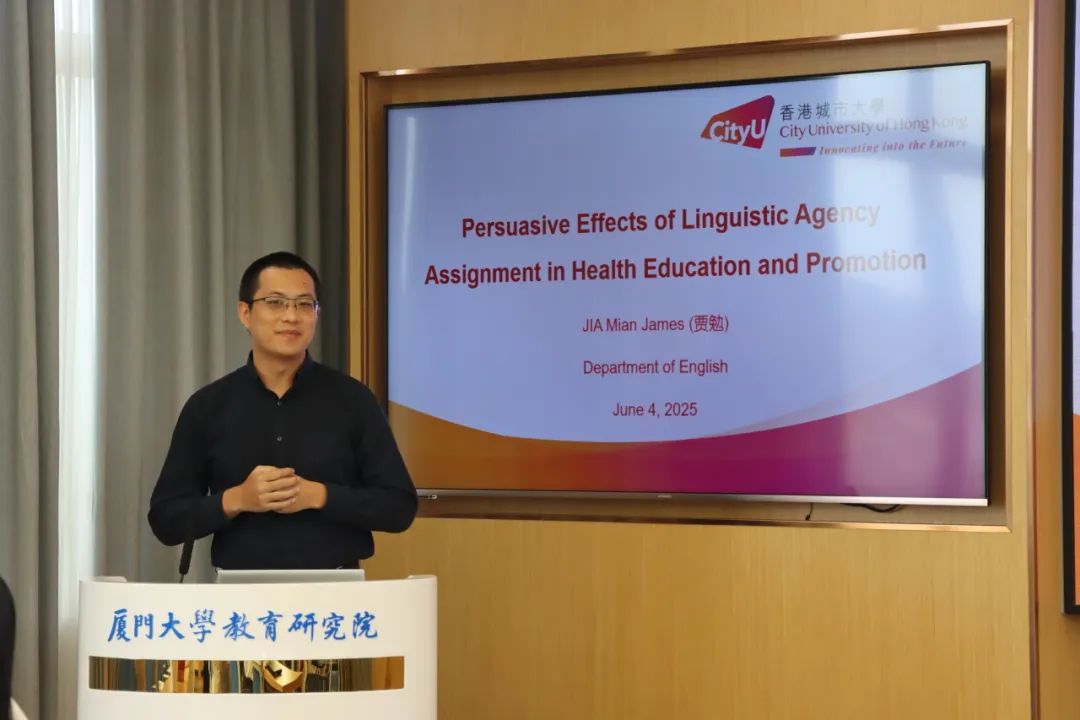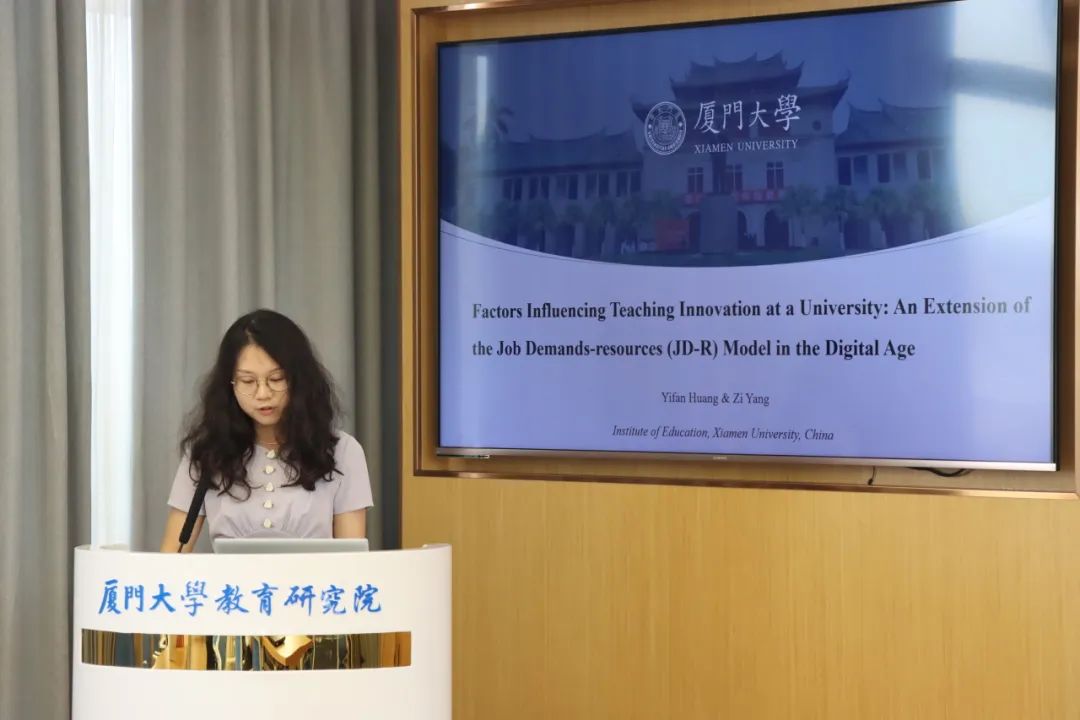On the morning of June 4, 2025, the Institute of Education hosted an academic symposium titled “Language, Technology, and Collaboration: Innovative Pathways in Higher Education in the Digital Age”.Grounded in the confronting higher education and its future trajectories, The conference foregrounded interdisciplinary integration and practice-oriented research, showcasing pioneering explorations across multiple fields. Scholars from City University of Hong Kong and Xiamen University gathered to discuss the convergence and transformation of education, language, and technology against the backdrop of the digital era.
The symposium was chaired by Assistant Professor Yang Zi of our institute. Distinguished guests included Professor Jason Harding, Head of the Department of English at the College of Humanities and Social Sciences, City University of Hong Kong, along with Associate Professor Yu Baohua and Assistant Professor Jia Mian. Also in attendance were our own Professor Guo Jianpeng, Associate Professor Huang Yifan, and Assistant Professors Zhou Ying, Yu Jingran, Cao Xuemeng, and Xiao Tong, etc.

The symposium opened with a welcome address from Professor Guo Jianpeng on behalf of the Institute, who extended a warm greeting to the visiting scholars.
The keynote segment followed. Professor Jason Harding, invoking the enduring value of the humanities, traced their evolution from rhetoric, linguistics and literary criticism to contemporary cultural theory. While the humanities are often dismissed as “impractical,” he argued, they remain irreplaceable in cultivating critical thinking, communicative competence, cultural awareness and professional flexibility. Empirical studies, he noted, show that graduates of English and related humanities demonstrate strong resilience and intercultural agility in the labour market. These findings carry significant implications for future educational policy and curriculum design.

Associate Professor Yu Baohua then presented a report on “Digital Storytelling (DST)” in the training of prospective English teachers. Framed by Activity Theory, this study traced how prospective teachers’ language proficiency, technical skills, and collaboration evolved throughout the process of digital-content creation. Findings show that DST not only markedly enhanced participants’ English expression and abilities to create multimedia content, but also sharpened their critical thinking, creativity, and self-confidence through the negotiation and problem-solving against challenges.

Next, Assistant Professor Jia Mian examined how adjusting “agency assignment” in health messages shapes public uptake. The study finds that compared with human-centered expressions, the language structure that endows health-related discourse with “agency” will significantly enhance the public’s perception of health threats and the effectiveness of response measures, and thus made them more inclined to take positive action. The findings offer theoretical grounding for the strategic design of public-health communication.


Finally, Associate Professor Huang Yifan and Assistant Professor Yang Zi presented an extended “Work Demands-Resources Model” study on the drivers of university teachers’ instructional innovation in the digital era. Their findings show that while new tools and training can spur experimentation, heavy teaching loads and high-stakes evaluation act as brakes. Teacher self-efficacy, institutional support, and digital literacy emerged as the pivotal resources that converted demanding contexts into opportunities for innovative pedagogy.

The keynote session was followed by a round-table discussion themed cross-disciplinary deployment of AI-enabled educational tools, teacher-student interaction mechanisms in blended teaching, and frameworks for evaluating universities’ digital transformation. The exchange was lively. Professor Guo Jianpeng closed the symposium with a summary and an overview of the Institute’s research strengths and international cooperation agenda. Professor Jason Harding and Professor Guo then exchanged gifts on behalf of their respective institutions, symbolizing a shared commitment to sustained scholarly exchange and collaboration.

Translated by:Dai Lan